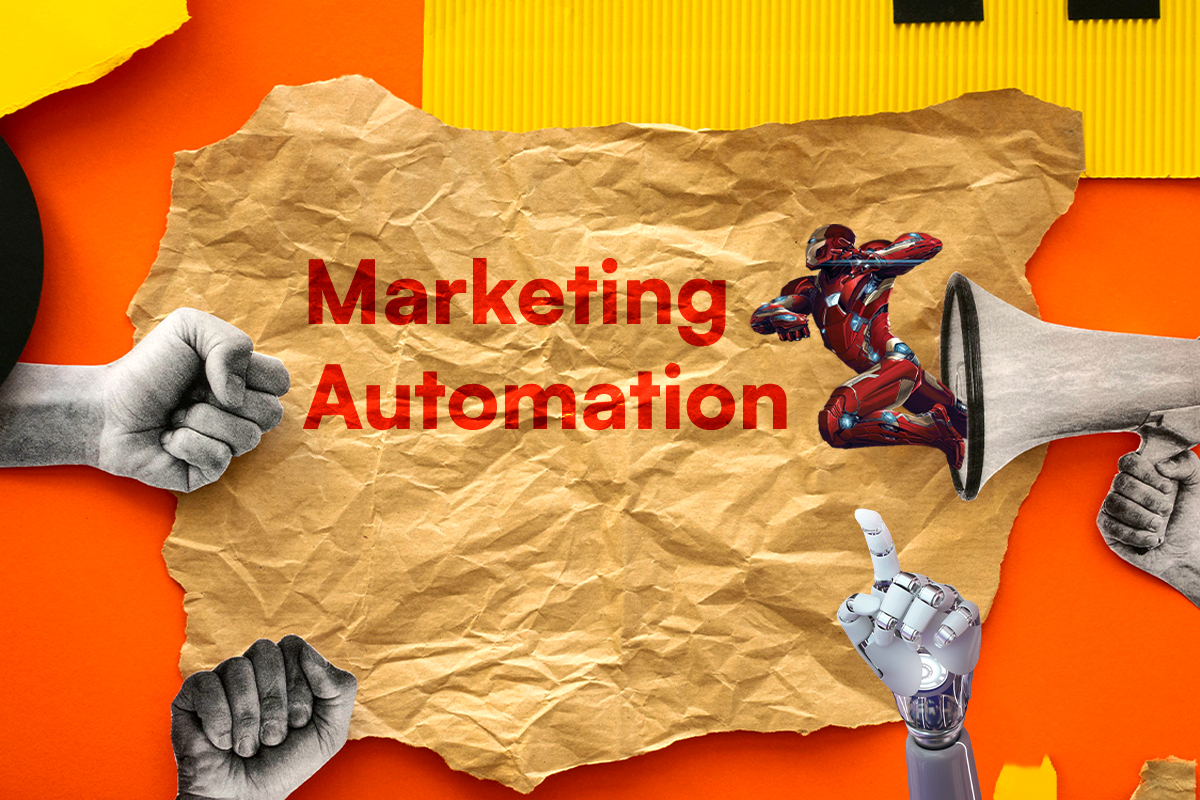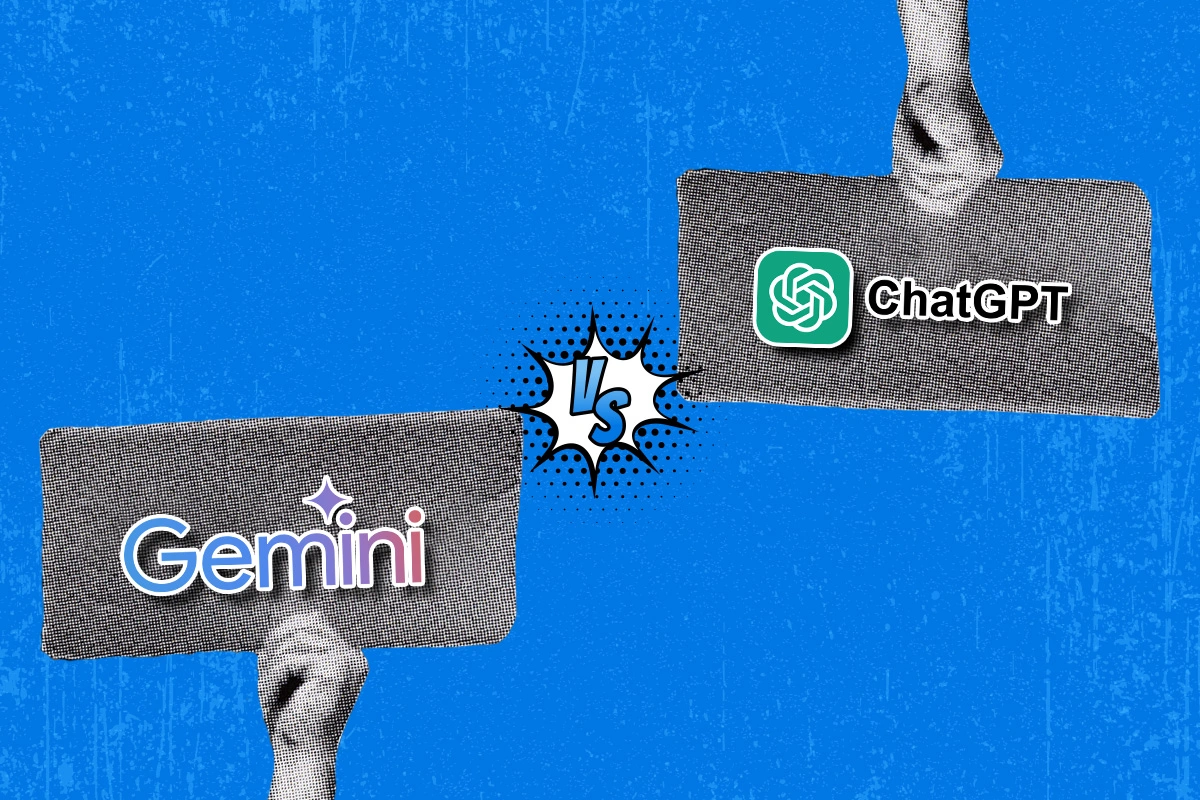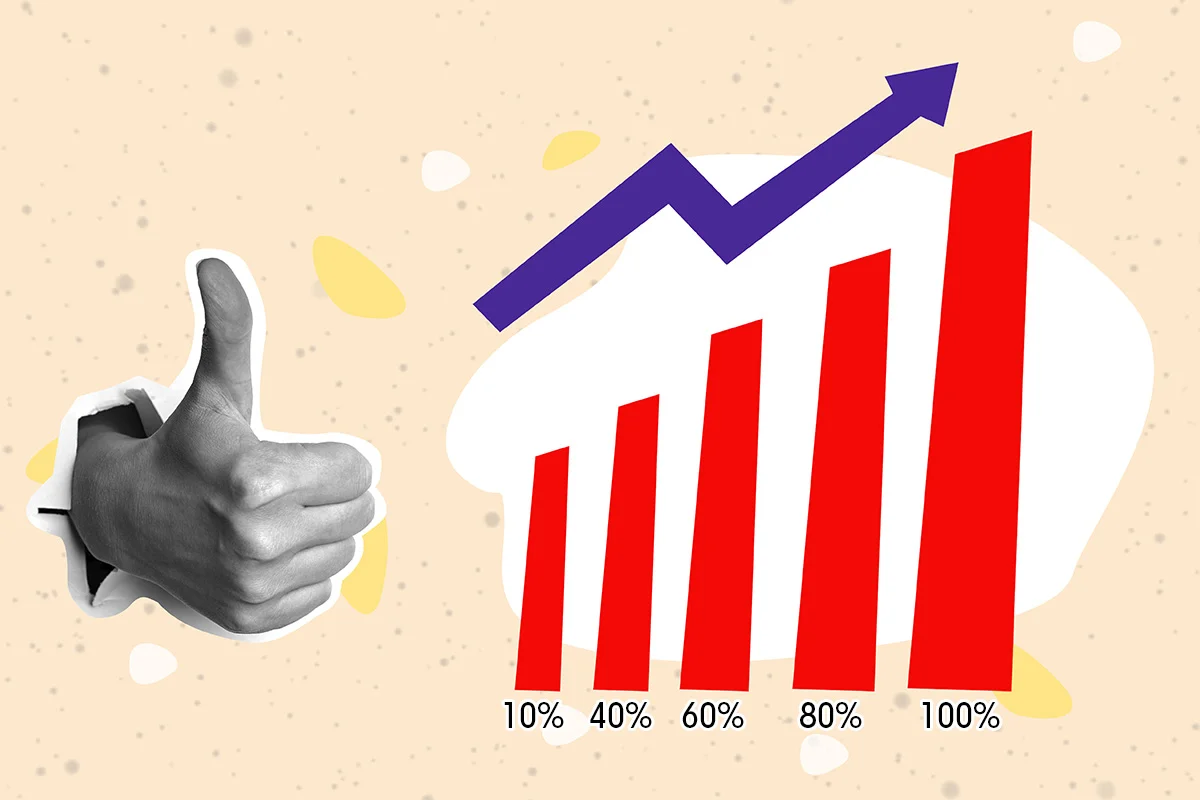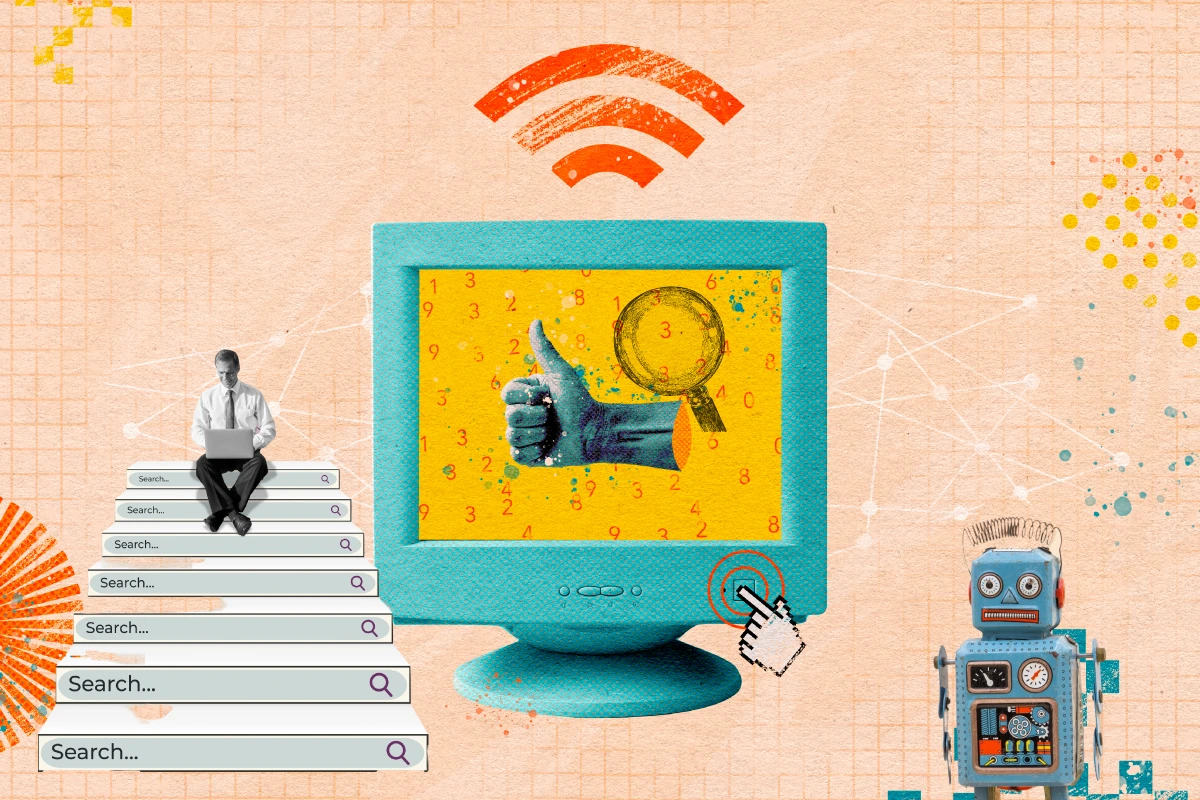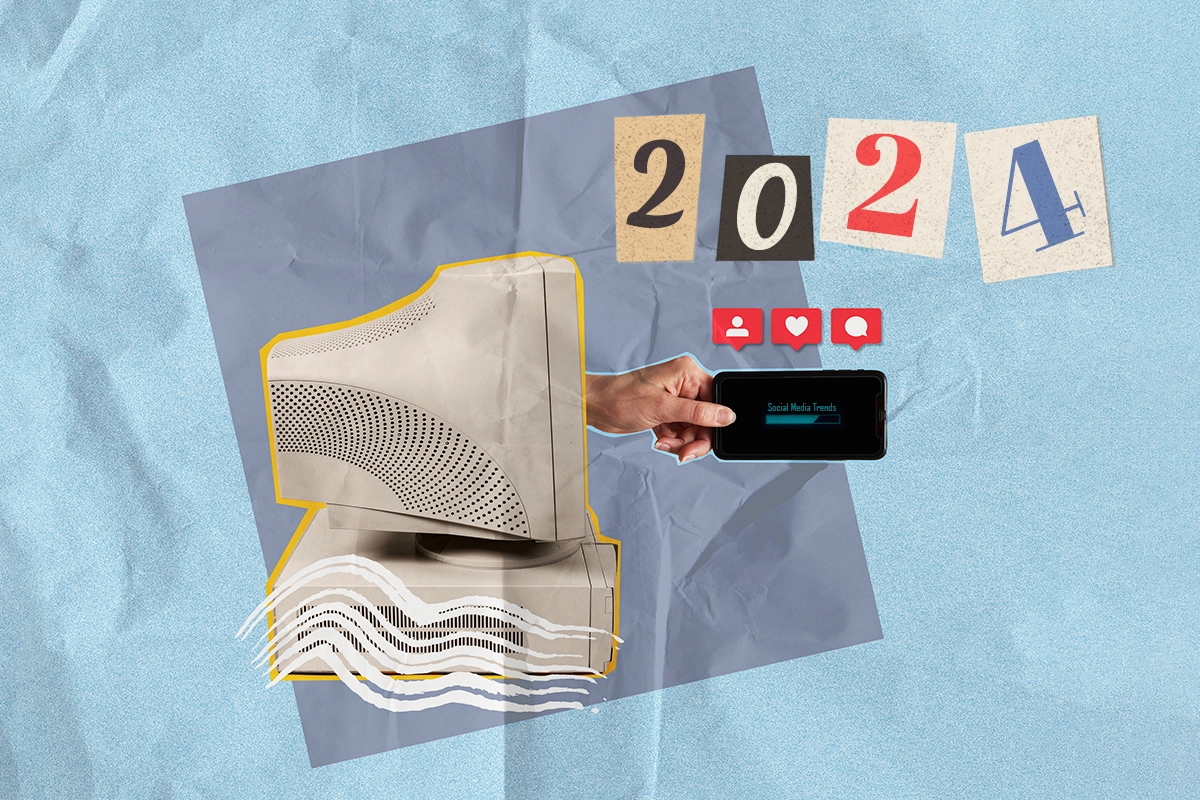In 2020, the global market for marketing automation reached $4,438.7 million, and projections indicate growth to $14,180.6 million by 2030. Notably, the top 28% of businesses actively incorporate marketing automation and AI tools into their processes, underlining the widespread recognition of the value these technologies bring to the organisation.
Introducing AI in Marketing Automation
Earlier the marketing teams were the real human AI, who used to manage even the smallest segments in ad campaigns. But now the advanced AI has become the most dominating power in marketing automation beating years of experienced marketing teams across the globe.
The integration of AI into marketing automation has ushered in a new era of possibilities and efficiencies. The convergence of AI and marketing automation holds the promise of transforming traditional marketing approaches, offering unprecedented insights and optimisation capabilities.
AI-driven marketing automation uses intelligent algorithms & machine learning to scrutinize extensive datasets, offering valuable insights. This technology excels at recognising patterns, forecasting customer behaviour, and customising marketing campaigns on a grand scale on platforms namely google analytics, Facebook ads and LinkedIn ads manager and many more.
How do Marketers use AI?
“You have to have a dependency on AI to turn the data into insights at the speed it needs to turn so you can make decisions and activate in near-real time.” Kirk McDonald
Kirk McDonald emphasizes the necessity of relying on AI to quickly transform data into actionable insights, enabling timely decision-making and real-time activation.
Leveraging AI in marketing automation offers a streamlined approach to marketing processes, affording marketers the luxury of time and focus for activities like brainstorming, strategizing the SEO and campaign management.

The financial benefits are tangible when automating repetitive tasks. For instance, the incorporation of AI chatbots in customer communication eliminates the need for human customer service agents, resulting in sustained cost savings over time.
According to a study by Accenture, companies embracing AI in their marketing strategies witness an average ROI increase of up to 30%. This underscores the substantial impact AI can have on enhancing marketing efficiency and driving measurable returns.
Lead generation & Automation in AI
Lead generation has undergone a profound transformation with the advent of marketing automation AI tools, empowering businesses to efficiently pinpoint and capture leads. AI tools utilize sophisticated algorithms & machine learning, analyze customer preferences, predict potential leads, and automatically collect vital information to build a comprehensive database for generating better leads across the internet.
Artificial intelligence in digital marketing emerges as a game-changer. It facilitates the delivery of personalized content and streamlined workflows, effectively engaging and guiding potential customers through the intricacies of the sales funnel. With AI-driven segmentation and targeting, businesses can distribute relevant messages and enticing offers to each lead, significantly enhancing the likelihood of conversion.
The success stories of lead generation and nurturing with marketing automation AI are myriad. Companies spanning diverse industries have borne witness to substantial enhancements in lead quality, conversion rates, and the trajectory of revenue growth.
By harnessing the formidable power of AI, these businesses have successfully streamlined their marketing processes, elevated the efficiency of lead nurturing, and attained a markedly higher return on investment.
AI in Social Media Marketing & Implementation Techniques
Platforms like Instagram, Facebook, TikTok, and LinkedIn heavily leverage AI to monitor user behaviours, ensuring personalized content delivery through targeted ads and profiles that capture individual interests.
By employing AI to monitor posts, marketers gain access to valuable insights that are instrumental in refining their social media strategies. Whether it involves crafting compelling posts or utilizing social media management tools, AI simplifies tasks across various platforms.
Ways to Implement Latest AI technology in Social Media Strategy
1. Optimization of content creation: Frequent and high-quality content creation is vital on social media, but many struggle with consistency. AI, like ChatGPT, aids in generating compelling text for posts, easing the challenge of constant ideation. By leveraging data from successful posts, AI also enhances graphic creation, ensuring visually appealing and engaging content.
2. Automated social media captions or text generation: AI writing tools streamline social media content creation by swiftly generating captions, headlines, and text. These tools analyze your desired message, considering audience and brand information. Particularly useful for product promotion, knowledge sharing, and connection-building, AI saves time while ensuring posts remain engaging and relevant, fostering stronger connections with your audience.
3. AI-Generated visuals: LinkedIn Posts with images gain more comments. Twitter namely X.com, tweets with visuals are 3 times more likely to engage users’ engagement.
AI transforms social media visuals by enabling the creation of customized images, infographics, and branded videos that resonate with your brand’s identity. With capabilities like automatic background removal, image retouching, and generating visuals from text, AI ensures not only appealing but also relevant and impactful content for blog posts and social media, maximizing engagement.
4. Harvest social media insights through strategic social listening: AI-powered social media monitoring tools provide valuable insights by analysing vast amounts of data.
These tools track global brand mentions, identify emerging trends, uncover new target demographics, monitor brand reputation, and promptly notify you of social media mentions. This real-time intelligence offers a competitive edge, enabling swift responses and innovative promotional strategies on social media.
5. Leveraging AI for automated sorting, tagging, and analysis: AI tools play a crucial role in managing large volumes of user-generated data, particularly for advertising and content appropriateness. Using sophisticated methods, these tools automate the sorting and tagging of content, ensuring accurate labelling for targeted ad campaigns.
Instagram, for instance, employs AI to identify picture content and add relevant tags, enhancing content discoverability.
6. Elevating customer engagement with AI chatbots: Chatbots have become a common and popular tool for customer interactions, offering quick and intelligent solutions on various platforms. They reduce wait times, remember past interactions, and enhance customer satisfaction.
Brands benefit from cost savings, 24/7 support, increased sales through product suggestions, targeted advertising, and assistance with product discovery and orders across social media and messaging apps.
7. Enhancing social media safety with AI-powered content moderation: AI bots play a crucial role in maintaining a clean social media environment by swiftly identifying and addressing spam or rule-breaking content. These tools not only target individual posts but also recognize and block accounts that consistently post inappropriate content.
This continuous monitoring ensures a safer and more enjoyable online space for users, fostering positive interactions and engagement.
8. Revolutionizing social media ads with AI precision: AI plays a vital role in optimizing social media ads, utilizing intricate algorithms to analyze user tastes and preferences. This deep understanding enables smart ad targeting, ensuring content resonates with specific user groups.
Platforms like Facebook leverage AI to identify the ideal audience for a given ad, enhancing the effectiveness of online marketing campaigns and maximizing their impact.
Future of AI in Marketing & Rise of New Age Marketing Automation Tools
AI has already made a profound influence on marketing, with its impact poised for further expansion in the years ahead. By analyzing extensive datasets, learning dynamically, and offering insightful predictions and recommendations, AI has empowered marketers to gain deeper insights into customer behaviour and craft highly personalized experiences. Let’s look at some highlights:-
In 2023, AI predictions suggest its dominance in content creation, intelligent chatbots, predictive content and social media sentiment analysis.
Marketing trends in 2024 for the future include voice search optimization, video marketing dominance, influencer marketing evolution and AR.
Major brands like Netflix, Spotify, and Coca-Cola leverage AI for personalized recommendations, music streaming suggestions, and optimizing digital advertising campaigns.
Embracing AI in marketing ensures staying ahead in a competitive marketplace and delivering a personalized, efficient customer experience.
Best AI Tools for marketing automation
AI implementation starts with AI tools. Tools are the primary catalyst for achieving efficiency in marketing automation. They serve as the true driving force behind the seamless integration of AI in marketing strategies. Let’s look at some prominent AI tools:-
Exploring Content at Scale
Having experimented with various AI writing tools, Content at Scale impresses with its ability to produce content that often registers at least 70% human-written in AI detectors. While the platform is new and the UI can be buggy, its content surpasses that of Surfer and Jasper in quality, making it a recommended tool for generating SEO blog posts. However, a final human review is advised for perfection.
Zapier: The Lego of Tech Stack Integration
Zapier functions as the Lego of tech stack integration, enabling users to effortlessly connect and automate marketing workflows across diverse systems. With over 3,000 integrations, Zapier streamlines process, saving time, enhancing efficiency, and cutting costs. Its AI-driven automation, called zaps, interprets signals with unparalleled speed, garnering praise for time-saving benefits. The platform offers robust support through blogs, webinars, an online community, and Zapier University for training.
“Jasper” AI Copywriting Evolution
Jasper, formerly known as Jarvis, emerged as a leading AI-powered copywriting system until facing a rebranding due to Marvel’s cease-and-desist letter. Despite its hiccup, Jasper excels at creating diverse and informed content, claiming to have “read” 10% of the internet. While it produces commendable drafts, human intervention is still essential for refining flow and minimizing repetition. Jasper’s user-friendly dashboard, affordability, and positive reviews make it a valuable tool for diverse content creation, promising efficiency and high SEO scores.
Despite the substantial growth in AI marketing automation, the necessity for human experts persists, acknowledging that in the age of automation, certain aspects, like crafting genuine connections, remain distinctly human. In the words of Evan Esar
“This may be the age of automation, but love is still being made by hand.”
Our team at Neoma bridges the gap in AI marketing automation with user-friendly approaches, ensuring streamlined AI applications. Our expertise is fortified through collaboration with leading experts across the nation. Our full-end marketing services are guarded by premium talents from the best MNCs in India.
FAQs
1. What is the AI Solution currently available?
Determining the “best” AI solution is challenging, given the diverse range of applications. The optimal choice depends on specific needs. Popular AI applications encompass virtual assistants (e.g., Google Assistant, Siri, Alexa), data analysis tools, machine learning platforms (TensorFlow, PyTorch), and content generation tools like OpenAI’s GPT-4. To find the most suitable AI for your requirements, research and compare solutions based on features, use cases, and user feedback.
2. Is Incorporating AI into daily routines advisable?
Integrating AI into daily routines can yield various benefits. AI-powered tools enhance efficiency, save time, and facilitate better decision-making.
3. Can AI contribute to increased earnings?
AI’s potential to boost income depends on industry, profession, and tool selection. Examples include identifying investment opportunities, optimizing marketing, enhancing customer service, and automating tasks. To maximize financial gains, invest in AI tools aligned with specific needs and objectives.
4. Mindful adoption of AI. Is it possible?
The answer is simply yes.
Leadership Collaboration: Leadership teams should collaborate with IT and legal to choose suitable AI tools and establish organization-wide AI policies.
Empowering Expertise: Intentional AI integration allows marketing teams to focus on expertise-driven tasks like audience research, content creation, and personalized customer care.

